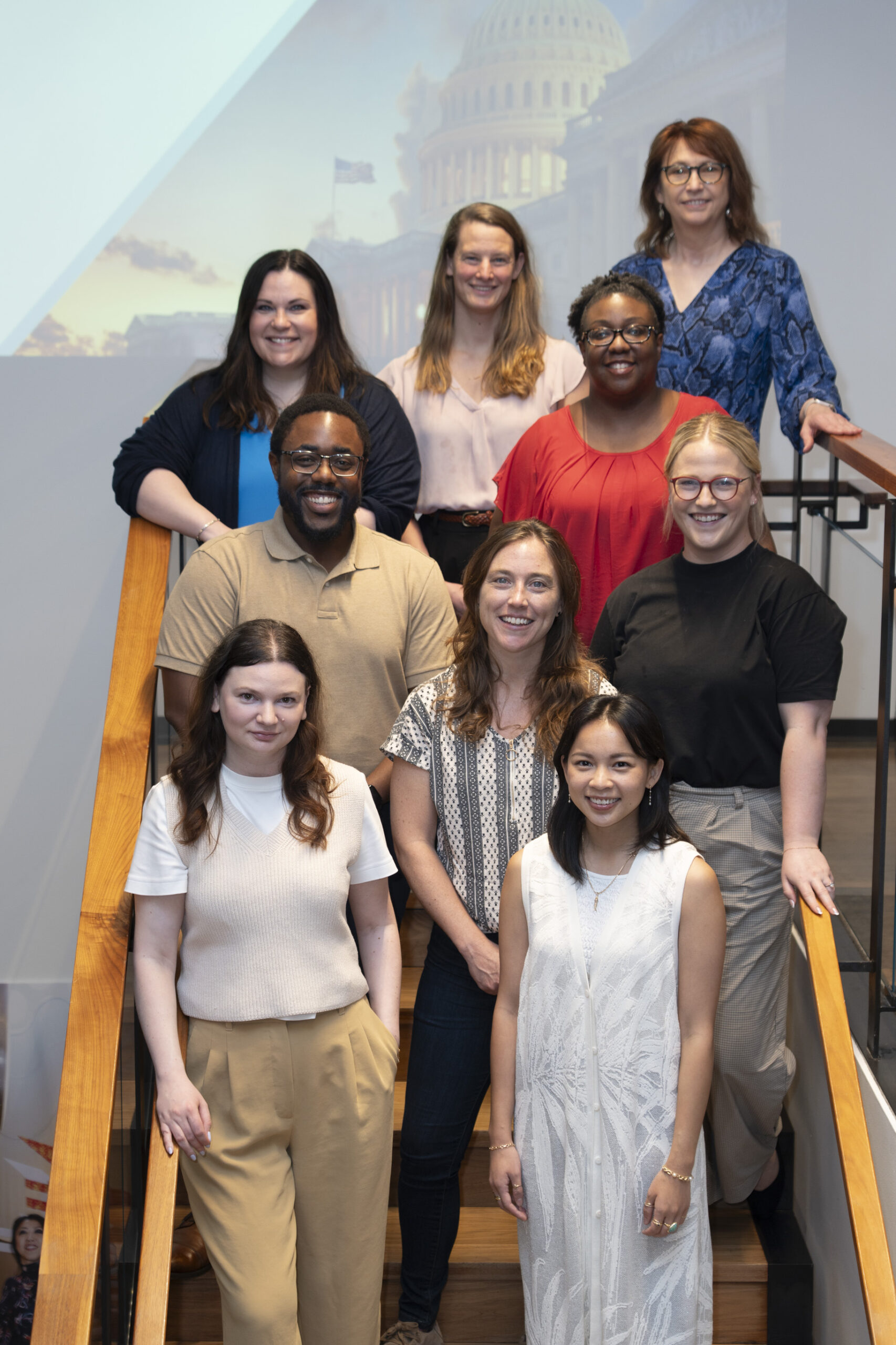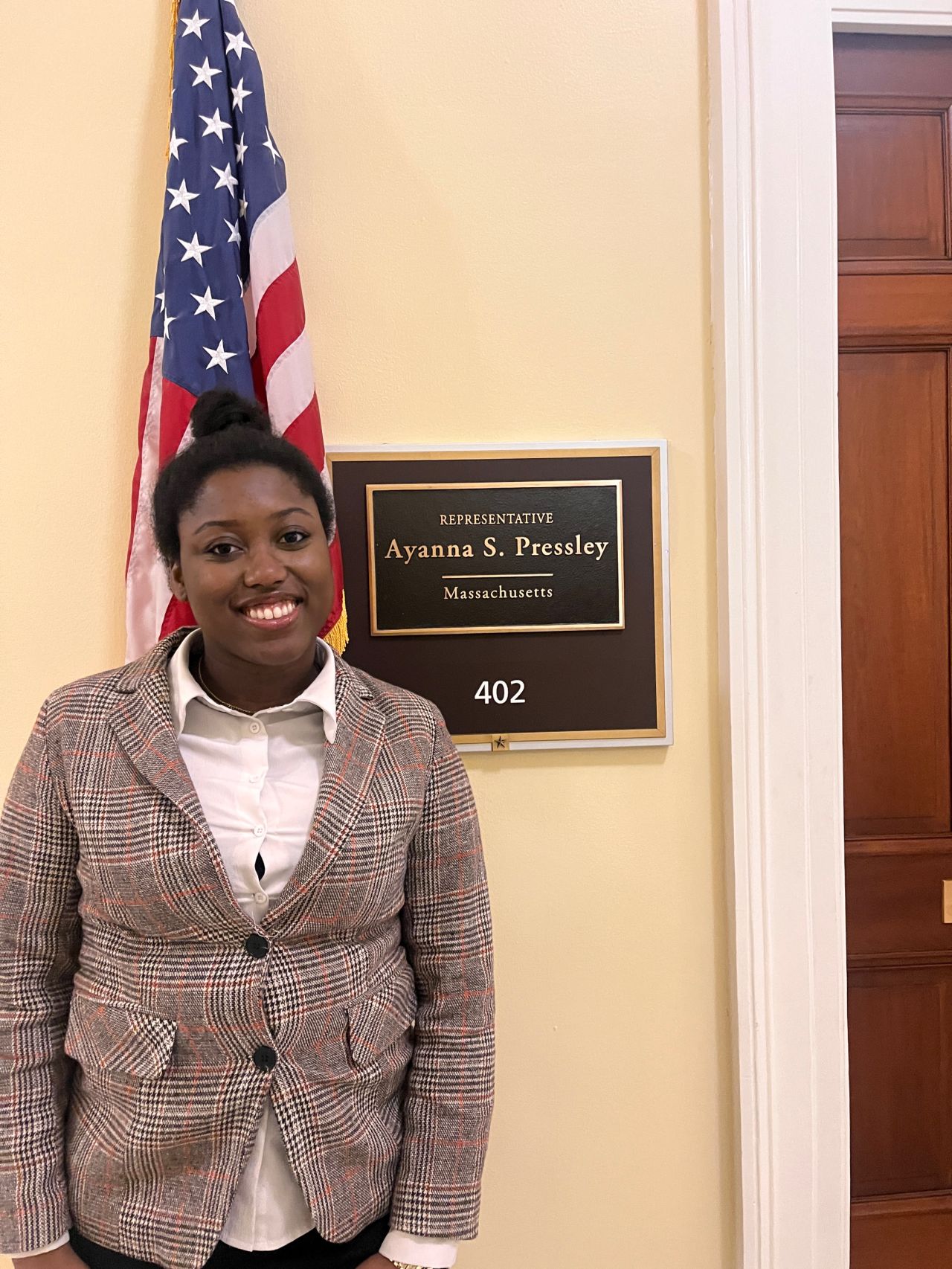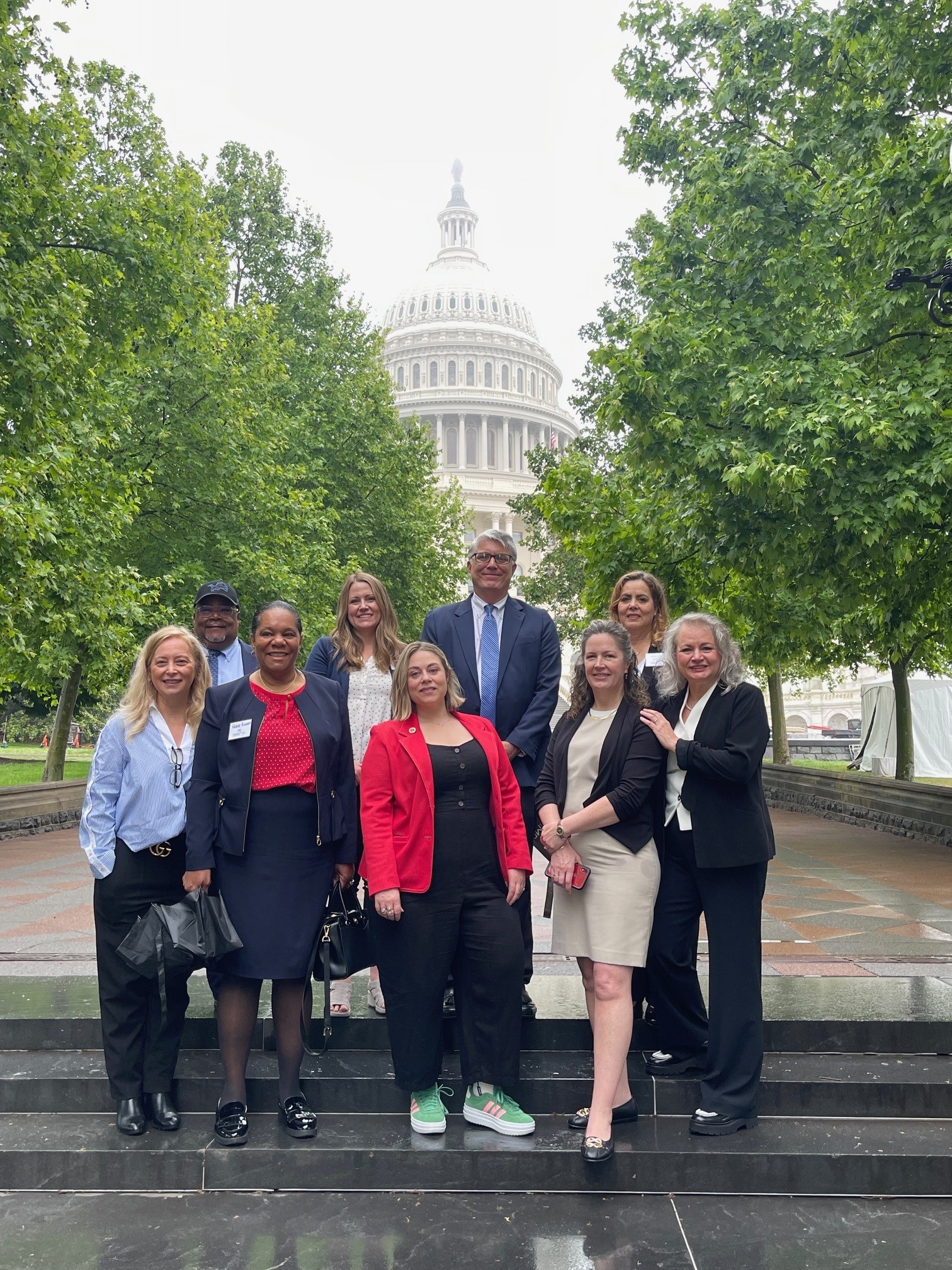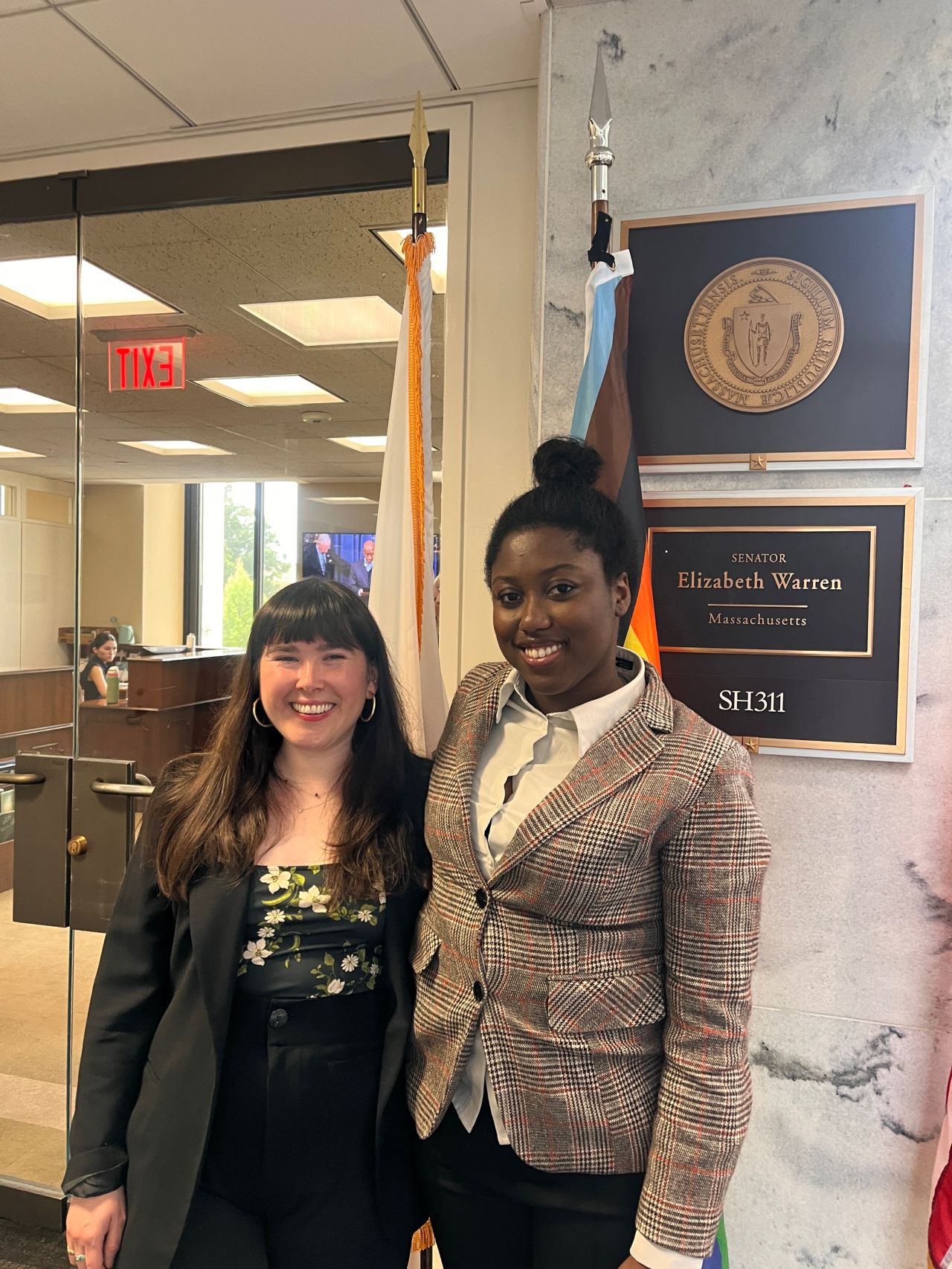
CareQuest Institute team members kick off OPEN Hill Day
OPEN Hill Day brought more than 90 members from across the US to Capitol Hill to meet with legislators about prioritizing oral health in their communities. For this Hill Day on May 14, the fourth one since 2019, there was more at stake: Potential Medicaid cuts are on the horizon, some policymakers are pushing to remove fluoride from public water supplies, and recent staff cuts to the Department of Health and Human Services are reshaping the oral health landscape.
India Washington, MHS, CPH, a master’s student at Johns Hopkins Bloomberg School of Public Health, was one of those OPEN members in DC. (OPEN, an initiative of CareQuest Institute, is the national network striving to make oral health care more affordable and accessible.)
“As a pre-dental student learning public health,” she says, “this event bridged the solution to my concerns and unveiled a future of dental health change making.”

India Washington at OPEN Hill Day
This wasn’t Washington’s first time advocating on Capitol Hill. She lobbied for prison reform as a sophomore in high school. In her junior year of college at Howard University, she rallied for the National Institutes of Health medical research funding. And now she joined other OPEN members to ask legislators to:
1) Oppose Medicaid cuts that would jeopardize access to dental care for 72 million people who rely on the program.
2) Improve access to dental care for veterans who get medical care through the United States Department of Veterans Affairs.
3) Support the HEADs UP Act, which would designate people with intellectual and developmental disabilities as a medically underserved population and increase their access to oral health care.
“I had an unforgettable experience these past two days training, networking, and raising overlooked issues to politicians in the House and Senate,” Washington says.

OPEN members at Hill Day
Below, she shared more about her first OPEN Hill Day:
Why are you passionate about helping expand access to oral health for individuals who don’t have it?
I have not even started my oral health career, and through volunteer work, I have been exposed to the devastating impacts of oral health disparities. While doing my pre-dental shadowing, I have seen people come into the dental office after years of avoidance. They come only when the pain is unbearable. Many people I talk to when I tell them that I want to be a dentist express their fears, the expense, or how hard it is to get treatment.
I recently graduated from the Bloomberg School of Public Health, where I was trained to think critically about policy and systems change. My passion stems from both personal exposure and academic training. Oral health is public health, and I’m committed to ensuring it’s treated as such. It is a human right, not a luxury.
Who did you meet with at OPEN Hill Day?

India Washington at Senator Warren’s Office
I met with Senator Elizabeth Warren’s (D-MA) office and Representative Ayanna Pressley’s (D-MA) office. Both offices were extremely receptive and were open to prioritizing oral health, but, unfortunately, in this climate, the offices could only offer their support for the future. Both offices are already opposed to Medicaid cuts. Additionally, they promised to be on the lookout for the HEADs UP Act and Veterans Health Administration bills as they get introduced.
Did you feel intimidated at all as a student at your first Hill Day?
Initially, as a student, I felt imposter syndrome. I was going to an event by myself, surrounded by experts in their fields, and was stepping out of my comfort zone. I have had past advocacy experiences, but none were centered around oral health. On the training day, I happened to sit with the friendliest group of people and immediately felt welcome. Dr. McGrath-Barnes and Dr. Herman were extremely inviting, connected me to other dental students, and affirmed that I should be there. I believe that more pre-dental students should be exposed to the policy side of dentistry because public oral health is necessary.
What moment sticks with you from the event?
The best moment from OPEN Hill Day was connecting with professionals who share a deep passion for expanding access to oral health. At the Bloomberg School of Public Health, conversations about oral health equity aren’t always front and center. Being surrounded by people who truly care about this issue made me feel seen and part of a larger community. That sense of belonging is what stays with me from Hill Day — to know that there are people with the same vision as me was powerful.
What will you do next after your experience at OPEN Hill Day?
I’m currently applying to dental school, and I hope to continuously return to future Hill Days as a provider-in-training and, eventually, a dentist. I also look forward to staying involved with CareQuest Institute and continuing to advocate for policies that center equity and access in oral health. It is important that more people show up to these events. Without strength in numbers, policy will not progress.
Do you have any advice for people thinking about attending Hill Day next year?
My advice to people thinking about attending Hill Day is to do it. Your voice matters, no matter how experienced you are in oral health advocacy. If you watch the OPEN trainings and connect personally to the policies, you will be prepared. Additionally, Hill Day gives you the opportunity to connect with like-minded individuals.
As for advocacy work, it is vital. Politicians are humans, too, and their job is to listen to you. You may be representing someone who may not have the means to come to Capitol Hill. Power in numbers is what we need to make a real change in oral health access.
To learn more about OPEN and the network’s upcoming events, go to carequest.org/open.
